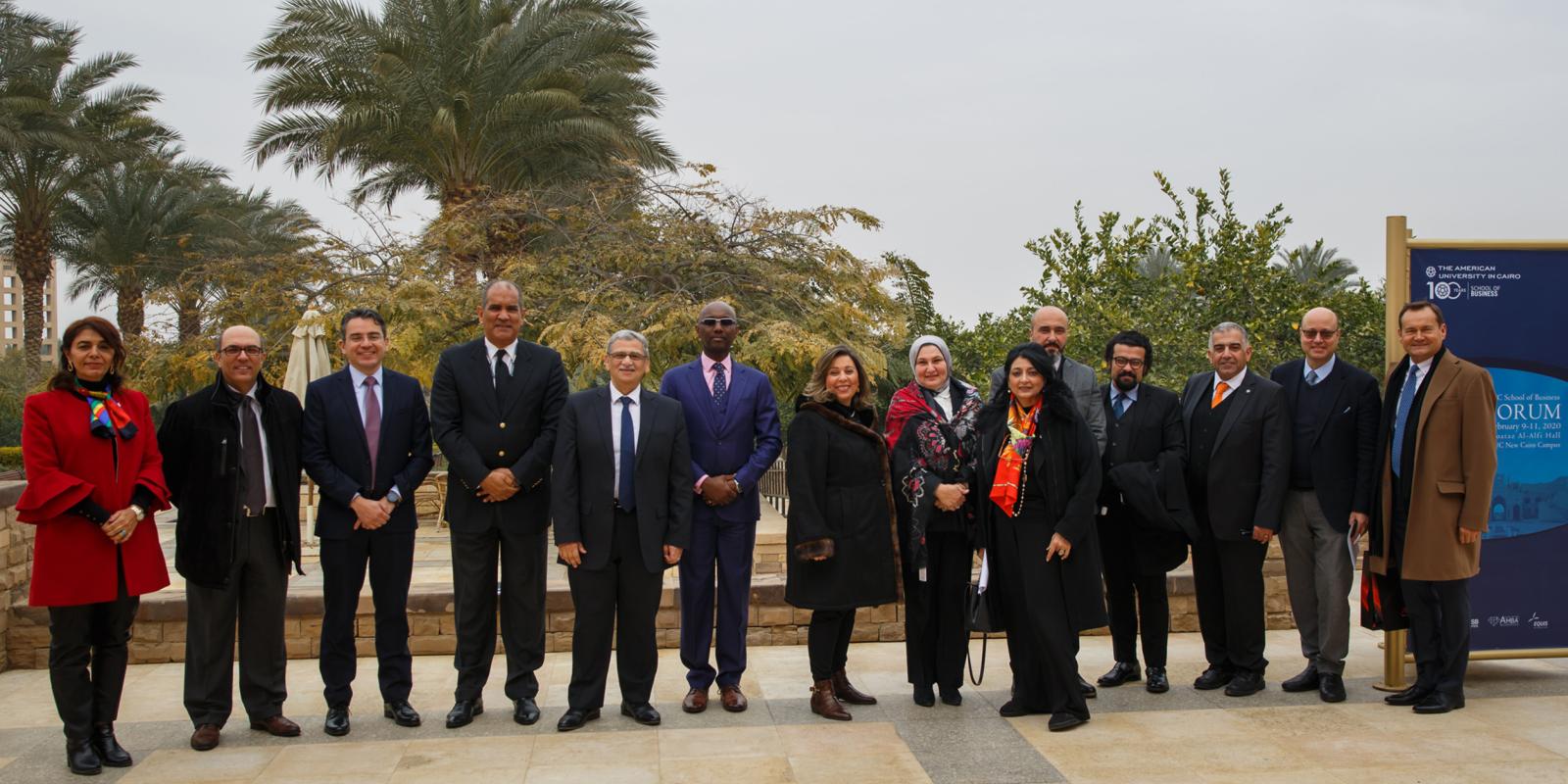
Business Reconfigured
The AUC Business Forum, which took place between February 9-11, brought together a diverse group of renowned and distinguished scholars, practitioners from the business industry, as well as policymakers from Egypt, Africa, the Middle East and other parts of the world, to discuss timely and relevant issues in the world of business education.
The fourth roundtable of the forum on “Business Reconfigured” was led by Ghada Howaidy, associate dean for Executive Education and External Relations, School of Business, The American University in Cairo; Amany Arafa, CEO and managing director, RMG EGYPT For Energy Projects; Amr Abdel Wahab Osman, senior partner, Logic Consulting, Egypt; Marco Serrato, associate provost, The University of Chicago and chair, UNICON, USA; and Mervat Sultan, chair, Export Development Bank, Egypt.
With the rapid and massive changes in commerce, this roundtable had a focal point of discussing the parallels and repercussions that such changes have on manufacturing, finance, healthcare, communication, governance and more.
The open discussions involved conversations on the evolution of business models, functions, operations, value chains, employer and employee relations, and the societal implications of having the reconfigured businesses unfold.
The main outcome of the many discussions was that change will always be a constant, and organization is a process. Businesses have to adapt and reconfigure themselves and always remain open to agility and innovation.
On the other hand, on the academic front, higher education’s role in providing a foundation for employment will be more vital than ever due to the new emerging landscapes. According to research, the top factors identified as challenges to digital transformations are mainly culture, skillset, talent, and work structure.
Re-skilling and up-skilling of employees will be required on a massive scale, and therefore regional and global executive education programs should always be the real bridge that connects the worlds of business and academia and helps solve the mismatch between what academia is providing and the actual needs of the business world.
Executive education needs to be reconfigured to accommodate the need for local, regional, and global partnerships, while also thinking about the education product beyond digital and consider how it extends to SDGs, since high-tech is set to change how societies will operate overall.
Find the full roundtable discussion here: https://www.youtube.com/watch?v=VLvI4E2U_LE
